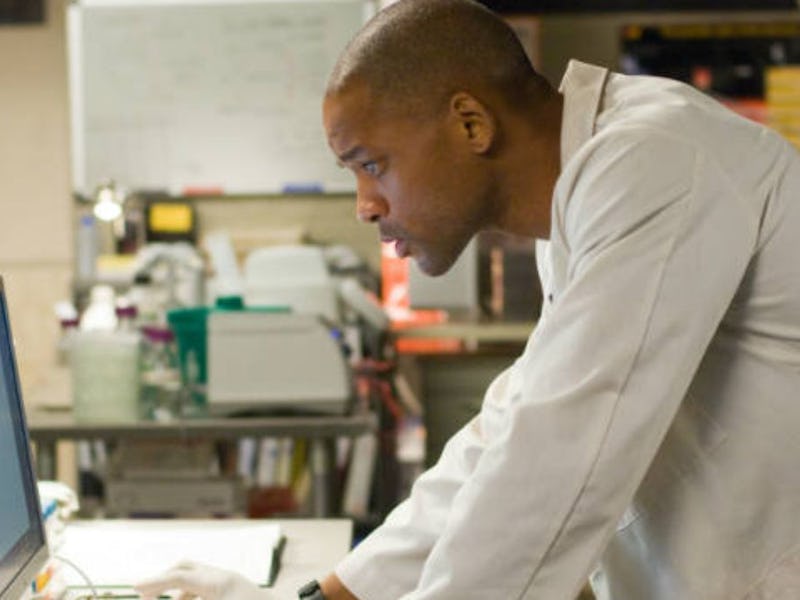Will Smith’s ‘Concussion’ Has the NFL Worried About Bennet Omalu
The forensic pathologist who discovered CTE is going to be famous by Christmas.

According to NFL beat writer Mike Florio of Pro Football Talk, NFL owners spent much of their recent league meeting talking about a Will Smith movie. And, no, it wasn’t After Earth. The film that has them bracing for impact is called Concussion and is based on “Game Brain,” an article about forensic pathologist and neuropathologist Bennet Omalu that rang the NFL’s bell in GQ. Omalu is the discoverer of chronic traumatic encephalopathy and, in that role, Roger Goodell’s default bete noir. And his personal story might be part of what makes the league nervous.
Born in the jungles of Eastern Nigeria, Omalu doesn’t care about football. He’s an intimidatingly intelligent researcher whose focus is as narrow as it is crucial. He cares about the brain. He is, in a sense, the guy that figured out that head injuries can manifest over time, causing dementia and depression and contributing to men like Junior Seau, Terry Long, Andre Waters, and Shane Dronett killing themselves. The fact that he did so at the behest of his boss, Cyril Wecht, one of the most respected forensic pathologists in the world, make Omalu all the more credible.
The scientist versus the sportocrats would be a movie worthy narrative unto itself, but Omalu is a formidable guy. Here’s what he told Frontline about the symptoms of Mike Webster, a former NFL player who’d struggled mentally and died of heart failure:
I knew that he was, based on the literature — not based on some voodoo I had done, but based on the literature — that his presenting symptomatology was more likely or more likely than not due to repeated blows to the head he suffered in playing that game where people dress up like extraterrestrials and slam into one another.
Here’s how he describes his motivations:
I have a total of — I can’t remember — is it eight or seven certifications and degrees? And I remember when I was going to business school my father now said to me: “Bennet, yes, I encouraged you to become educated, but why all this education? Why are you doing it? What is your motive? What I want to tell you, if your motive is for selfish reasons to become domineering all over the world, then I must warn you that is dangerous, but if your motive is to use your knowledge to help other people, to enhance the lives of other people, make a difference in the lives of other people, then it is good.” OK?
In short, the NFL has reason to be concerned if Omalu, a person well known in his field and to serious-minded fans, becomes a pop culture figure courtesy of a Will Smith performance. Omalu isn’t a threat to the game in any sense — there’s no reason to believe players don’t understand the risks at this point — but he could make it hard for followers of the sport to, in good conscious, spectate. Whatever happens, the conversation about contact is going to become another national conversation about science and how we deal with inconvenient, deadly truths.